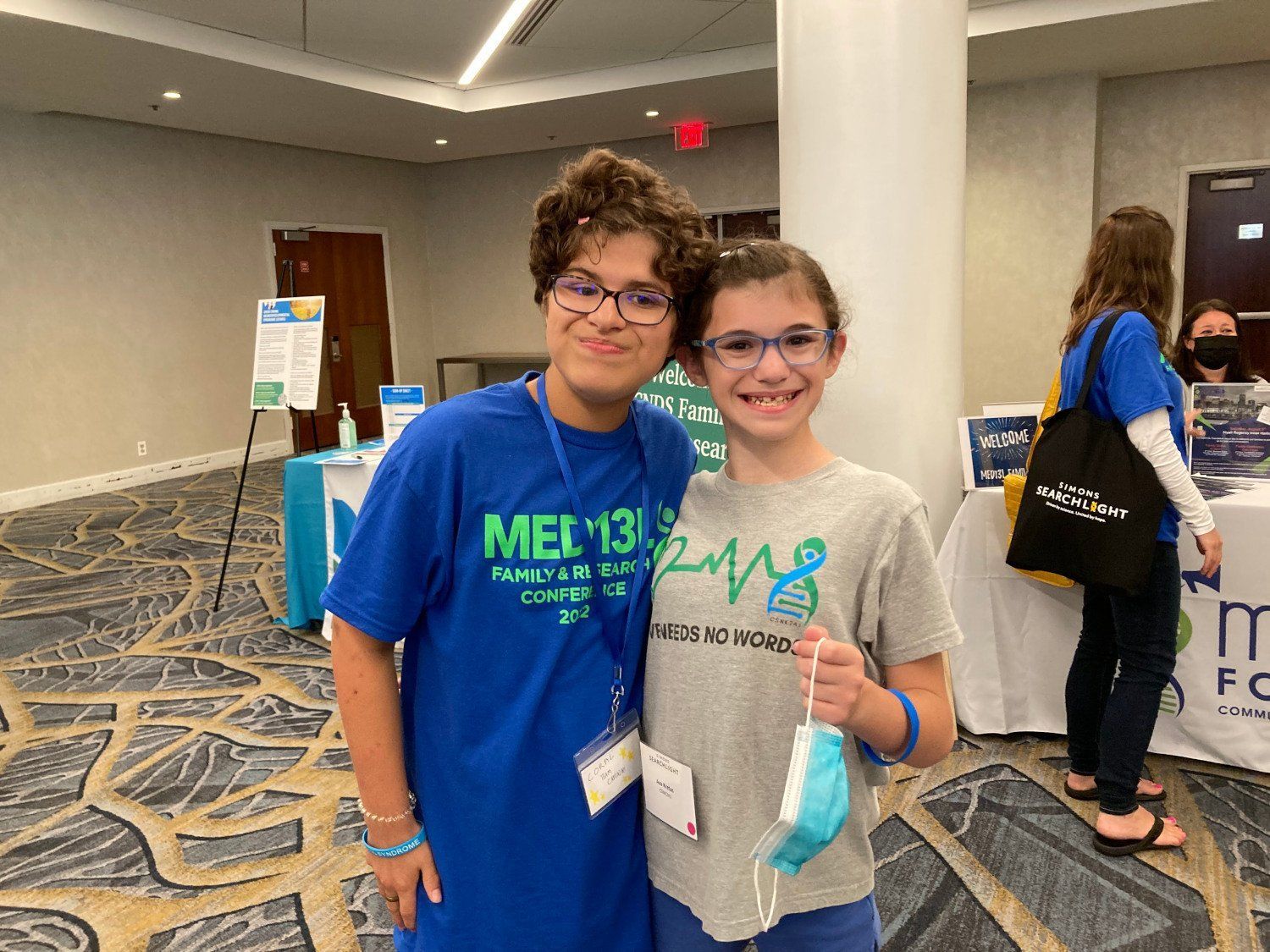Friendship Across Rare Diseases

By Melanie Kretas
When I walked into the hotel where the 2022 OCNDS was being held, I felt a mixed bag of emotions. I felt incredibly blessed to be part of a community that felt like family. I was excited to meet new families and see many of the “old” families that I had met at the previous conference, as well as through regular phone discussion sessions and a very active Facebook group. It would be so nice to see them in person rather than on a Zoom screen! I was anxious to learn about the new research that had been done and what that would mean for our children and families. I also felt an overwhelming sense of hope for our children and the sense that everything would turn out okay.
As I walked through the front door of the hotel, I already felt comfortable, welcomed, and not alone. After settling into our hotel room, my family and I went to the floor where the conference activities would be held, where we would mingle, socialize and dine on some fabulous meals together.
I had surely thought the first family I would meet would be an OCNDS family like ours. Instead, to my surprise, it wasn’t. We were greeted by a 17-year-old bubbly, smiling, and spunky girl with a different rare disease called MED13L. After a long, wonderful introduction, I felt as if we had known this girl, Coral, and her mother for a long time. They both were so lovely, warm, and welcoming. My daughter Ava, who is 11 and just as spunky, immediately hit it off with Coral, and within a few hours, they were already planning to stay in touch after the conference, exchanging phone numbers and ROBLOX names. They laughed uncontrollably at each other’s antics and jokes and even danced to music they played on their phones. At night they begged us not to head upstairs to bed so they could spend more time together.
Ava and Coral stuck together throughout the long conference weekend. One night Coral was hanging out with some kids from her MED13L group. She invited Ava to join them, and they all ran around, chasing each other, their laughter and screeches filling the air. It was like they had known each other a long time, rather than a few days. There was an incredibly heartwarming moment when they came together for a group hug.
On the last night, there was a huge dance party. Ava and Coral were all over the dance floor, rallying people from every corner to join the dancing. They even danced with Dr. Okur and Dr. Chung- some very memorable, happy moments!
Ava and Coral were like two puzzle pieces that fit instantly together. Their puzzle was whole now that they had met each other -a connection that I hope will last long after the conference ends. While the girls were doing their thing, I had many opportunities to talk with Coral’s mother. We talked about things we typically wouldn’t discuss with parents of neurotypical kids: eating habits, toilet, menstrual issues, and especially how their quirky personalities impact their ability to make and keep friends. We shared our hope that they would always find a way to fit in with friends who can truly understand them.
Throughout the weekend, we continued to meet new families and reconnect with old friends. Each family shared a special place in my heart. I know that this rare community, this rare world I now live in, is far broader than I ever imagined. This weekend confirmed that and I am forever grateful. Near and far, I now have a beautiful and diverse rare family. As we walked through the doors of the hotel to head home, we each had so much more than we had when we had walked in a few days ago.
